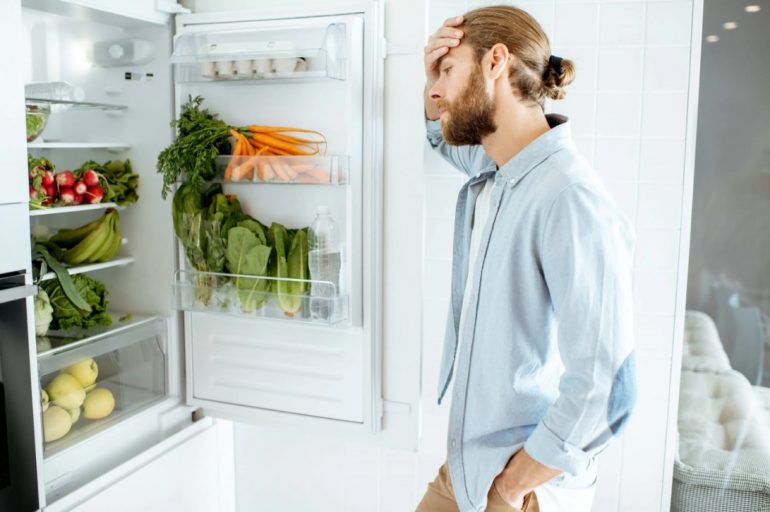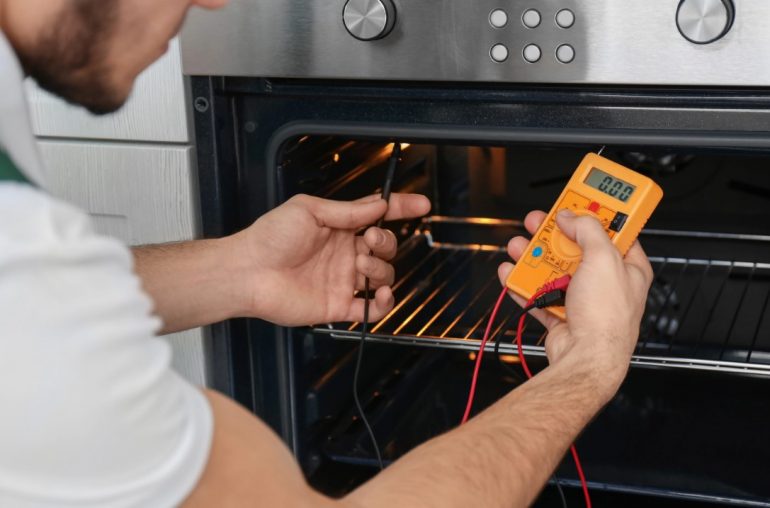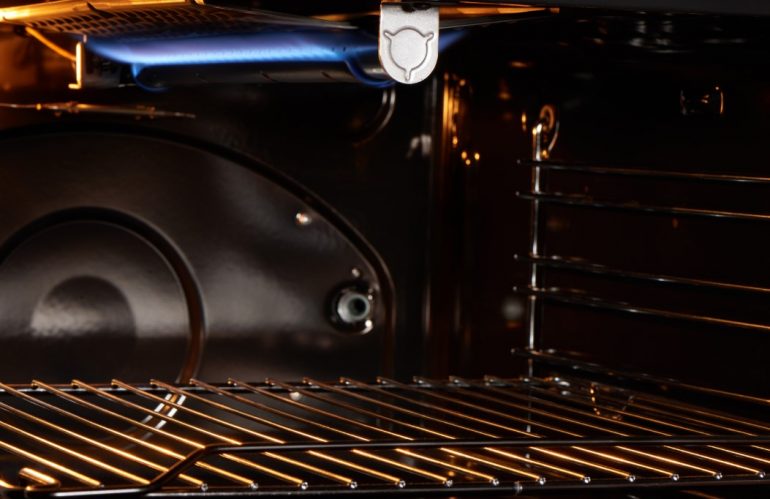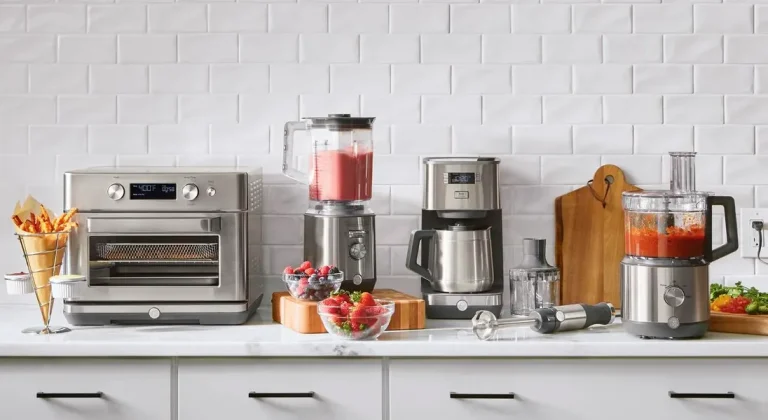Appliances play a crucial role in our daily lives. When they fail, it disrupts routine tasks and adds unnecessary stress. Common problems can often be resolved with a bit of knowledge and effort. This guide covers how to address typical appliance failures.
Whether the issue is with a refrigerator, washing machine, or oven, simple steps can often restore functionality. In some cases, professional intervention might be necessary. For expert help specialized in appliance repair, you can turn to services available in your area. Expert technicians can diagnose problems accurately and provide effective solutions.
Key Points:
- Start with basic troubleshooting steps before seeking professional help.
- Identify the specific problem for more accurate solutions.
- Regular maintenance can prevent many common issues.
- Know when to call a professional to avoid further damage.
Refrigerator Not Cooling Properly
If your refrigerator isn’t cooling as it should, check a few key components first. Ensure the temperature settings are correct. Often, problems arise from the thermostat being set too high. Examine the door seals; they should be airtight. If seals are damaged, warm air can enter and reduce cooling efficiency. Verify that the vents inside the fridge and freezer are not blocked by food items. Poor airflow can impact cooling performance.
Also, ensure that the condenser coils are clean. Dust and debris on the coils can cause overheating and inefficient cooling. You can clean these coils with a vacuum or a brush. If the problem persists, the issue might be with the compressor or evaporator fan. In such cases, professional help might be needed to avoid potential damage.

Washing Machine Won’t Start
A washing machine that doesn’t start can be frustrating. Begin by checking the power supply. Ensure the machine is plugged in and the circuit breaker hasn’t tripped. Examine the door or lid switch. If it’s faulty, the washer won’t start. Look for any error codes displayed on the control panel; these codes can provide clues about the malfunction.
Inspect the water supply valves. If the machine doesn’t fill with water, the valves might be turned off or malfunctioning. Ensure hoses are properly connected and not kinked. Also, check the drain pump filter for clogs. A clogged filter can prevent the washer from draining and might stop it from starting.
Oven Not Heating
When an oven fails to heat, the issue could be with the heating element. Inspect the element for visible damage. If it’s broken, replace it. The oven’s thermostat might also be at fault. If it’s malfunctioning, it won’t regulate the temperature correctly. Test the thermostat with an oven thermometer to check its accuracy.
Another common problem is with the igniter in gas ovens. If the igniter isn’t working, it won’t ignite the gas to heat the oven. Check the igniter for signs of wear or damage. If necessary, it may need replacement. Ensure that the oven is getting power; a tripped circuit breaker or a blown fuse might be the cause.

Dishwasher Not Draining
A dishwasher that doesn’t drain properly can lead to water pooling at the bottom. Start by inspecting the drain hose for clogs or kinks. Ensure the hose is connected correctly to the sink or garbage disposal. Check the dishwasher filter for debris. A clogged filter can prevent proper drainage.
The drain pump might also be the problem. If it’s faulty, it won’t pump out the water. Listen for unusual noises during the drain cycle; they might indicate a problem with the pump. If these steps don’t resolve the issue, professional service may be necessary to prevent further complications.
Microwave Not Working
If a microwave fails to start, check the power supply first. Ensure it’s plugged in and the circuit breaker is not tripped. Examine the door latch and hinges. If the door doesn’t close properly, the microwave won’t operate. Inspect the fuse inside the microwave. If it’s blown, replace it.
Microwave problems might also be due to the high-voltage diode or capacitor. If these components are malfunctioning, the microwave might not heat properly. These parts can be dangerous to handle without proper knowledge, so seeking professional assistance might be the safest option.

Ice Maker Not Producing Ice
Check the water supply line to ensure it’s connected and not frozen. Inspect the ice maker’s filter. A clogged filter can restrict water flow and affect ice production.
Ensure the ice maker is turned on and the bin is not overfilled. Sometimes, ice production stops if the bin is too full. Examine the ice maker’s components for any visible damage. If problems persist, a professional can help diagnose and resolve issues related to the ice maker’s motor or thermostat.
Oven Smells Like Gas
If an oven smells like gas, it’s crucial to act quickly. Turn off the oven and gas supply immediately. Ventilate the area by opening windows and doors. Do not use electrical appliances or create any sparks. A gas smell indicates a possible leak or malfunction.
Check the connections between the gas line and the oven. If they are loose, tighten them carefully. If you suspect a gas leak, contact a professional immediately. Gas-related issues require expert attention to ensure safety and proper repair.

Dryer Not Heating
A dryer that fails to heat can be due to several issues. Start by inspecting the heating element. If it’s faulty, the dryer won’t produce heat. Check the thermal fuse, which can blow if the dryer overheats. A blown fuse will prevent the dryer from heating.
Examine the thermostat for any faults. A malfunctioning thermostat can affect the dryer’s heating capability. Ensure the dryer’s vents are clear of lint. Blocked vents can cause overheating and reduced efficiency. Cleaning the lint trap and vents regularly can prevent such issues.
Conclusion
Most appliance problems can be resolved with a few basic troubleshooting steps. Regular maintenance is crucial for preventing many common issues. Simple actions, such as cleaning filters, checking seals, and ensuring proper connections, can keep appliances running smoothly and efficiently. It is also important to regularly inspect and clean key components, as neglect can lead to more significant problems.
When facing persistent issues or complex malfunctions, professional assistance might be the best course of action.

